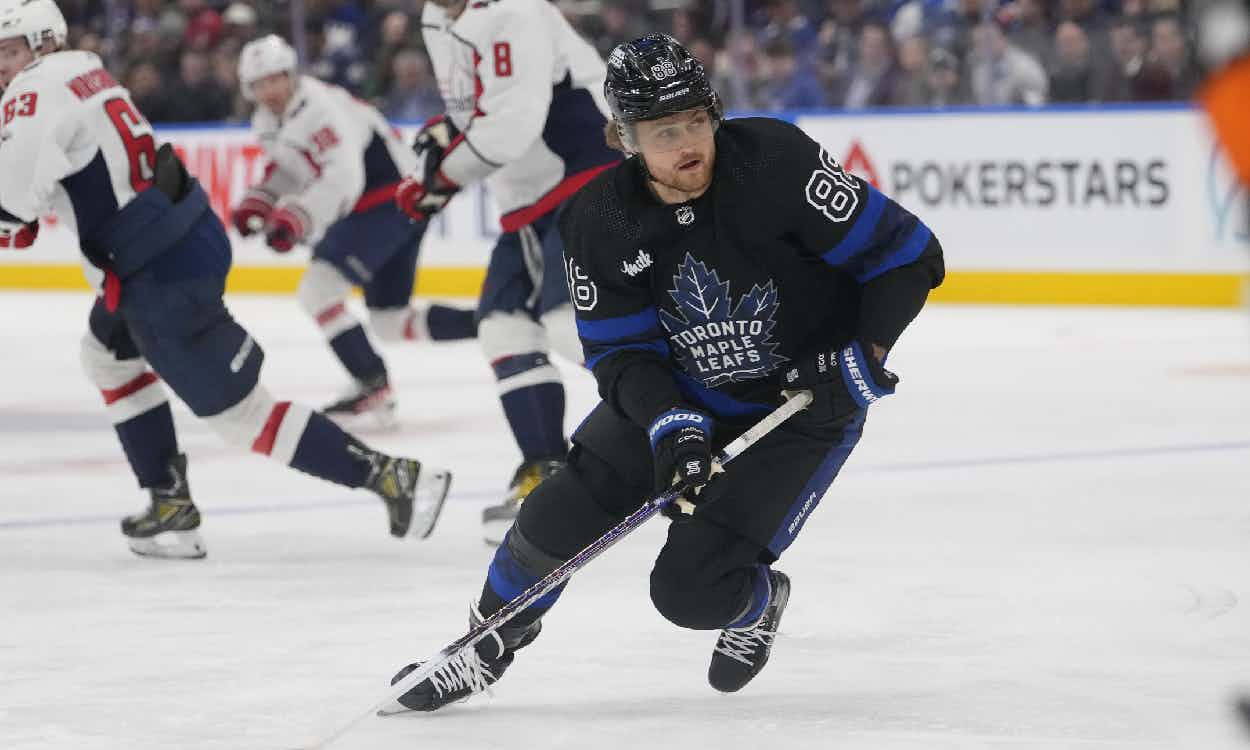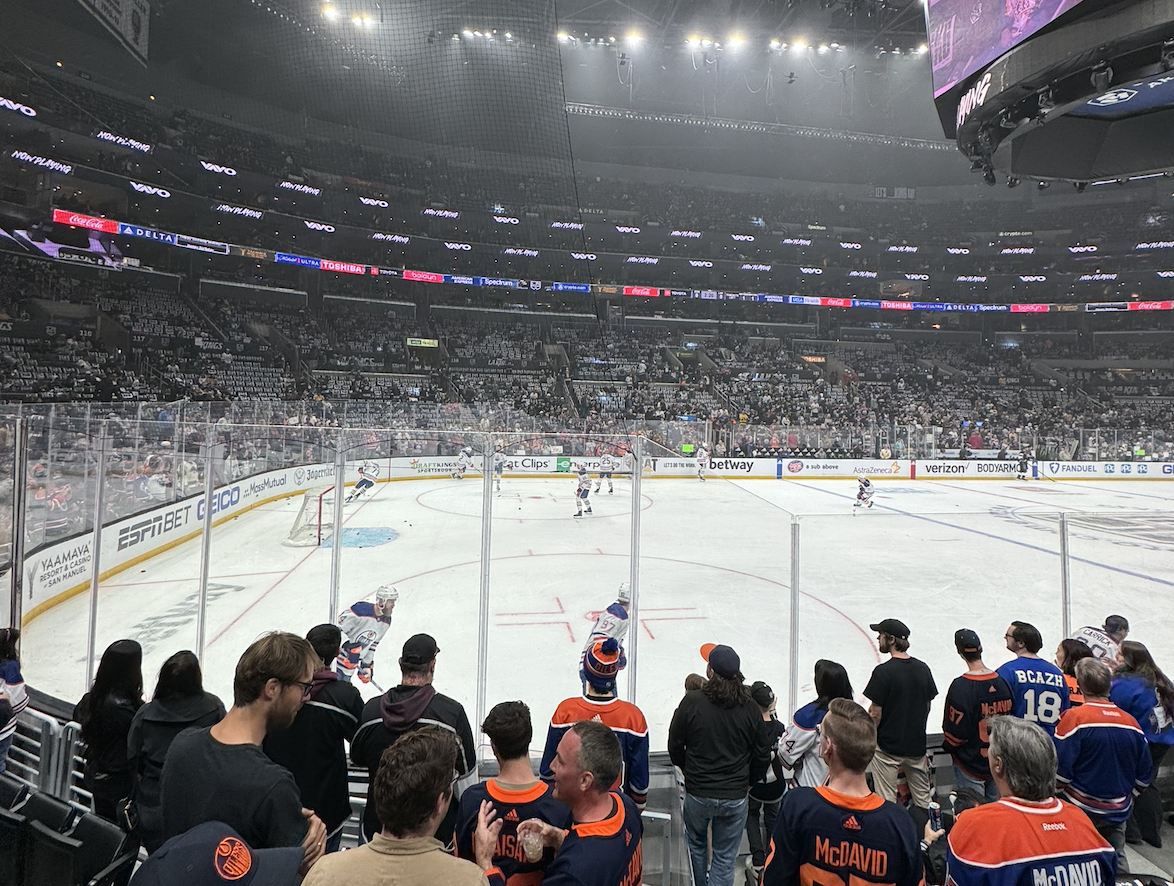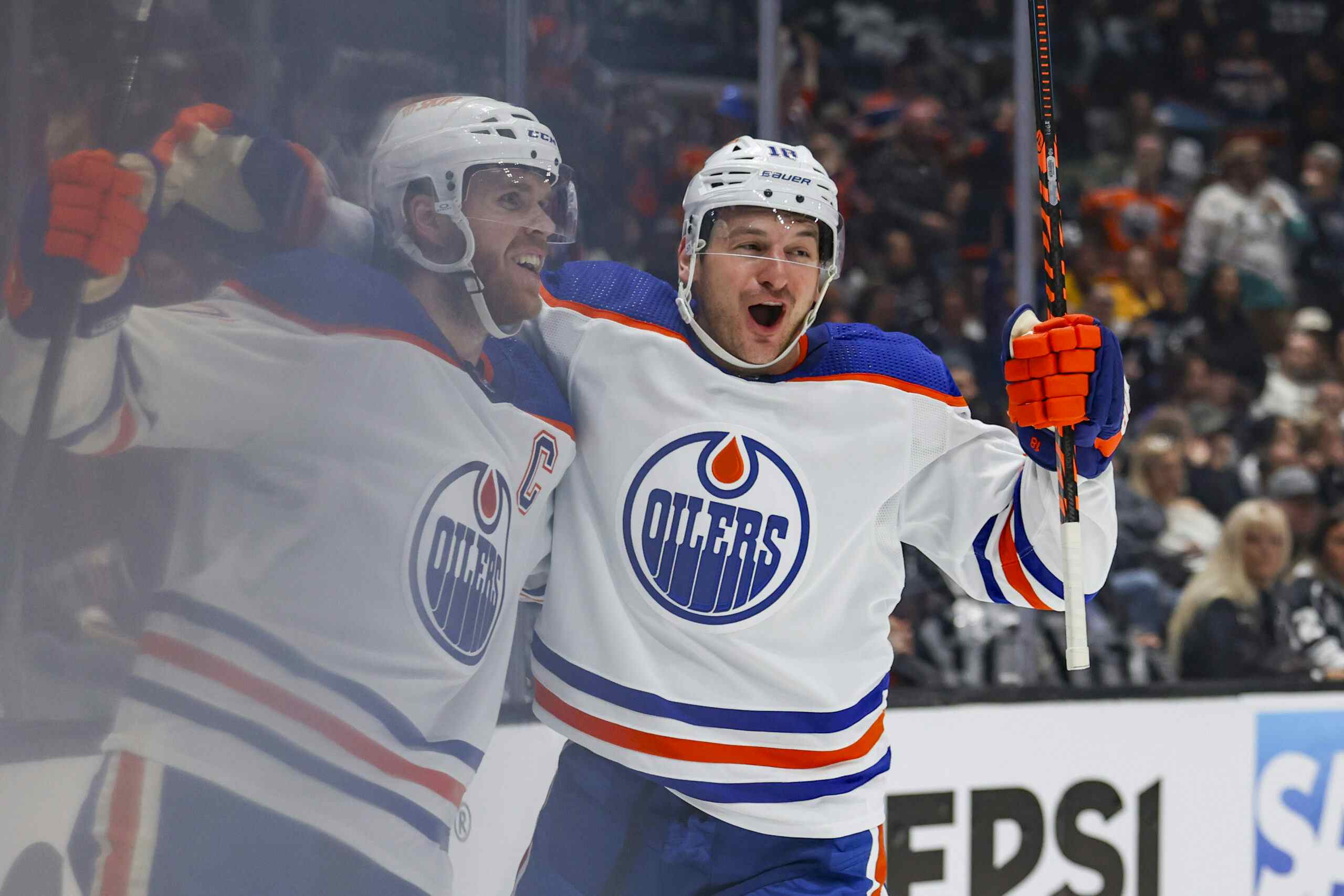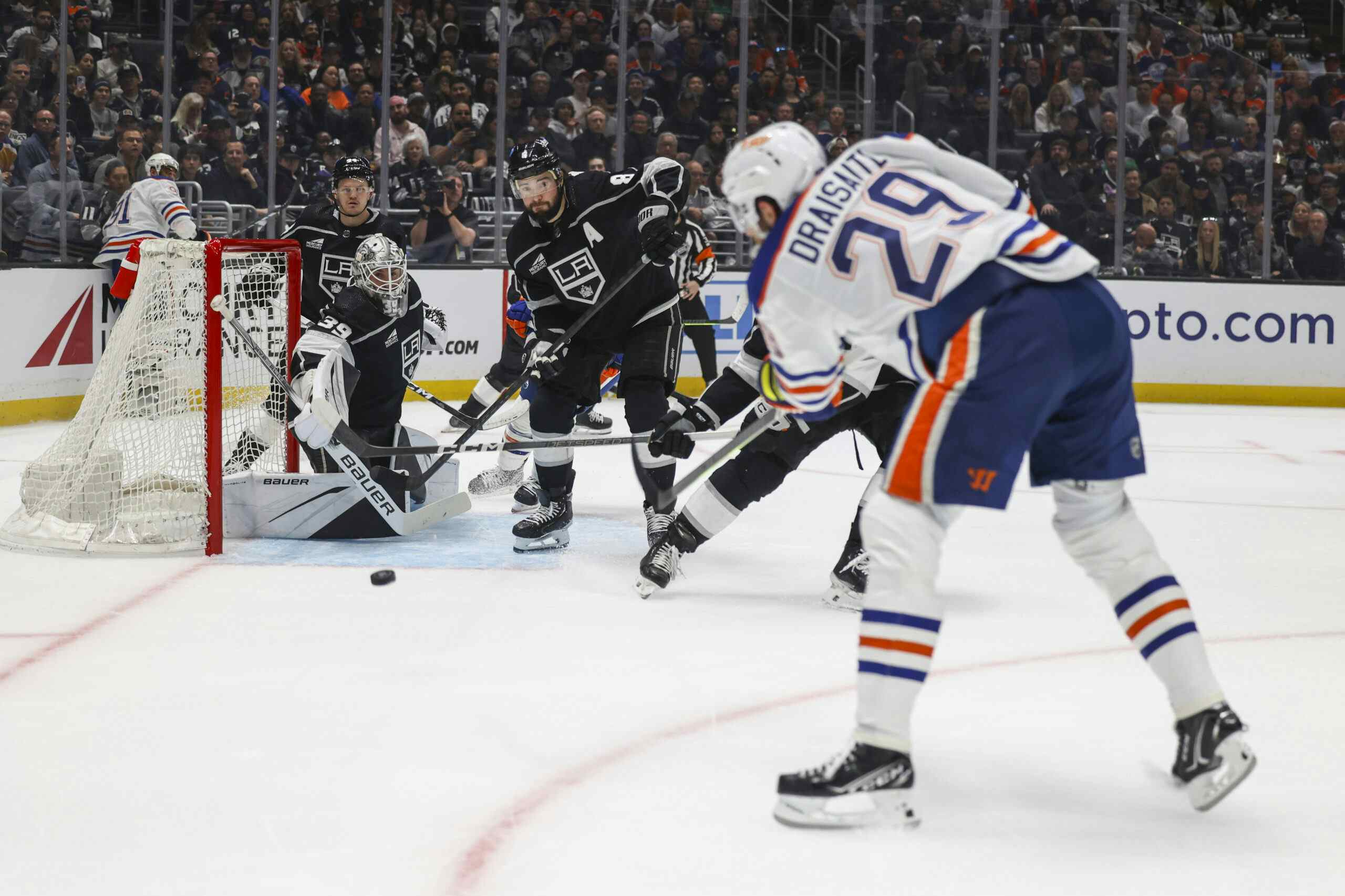Chayka talks Coyotes, character, analytics and more
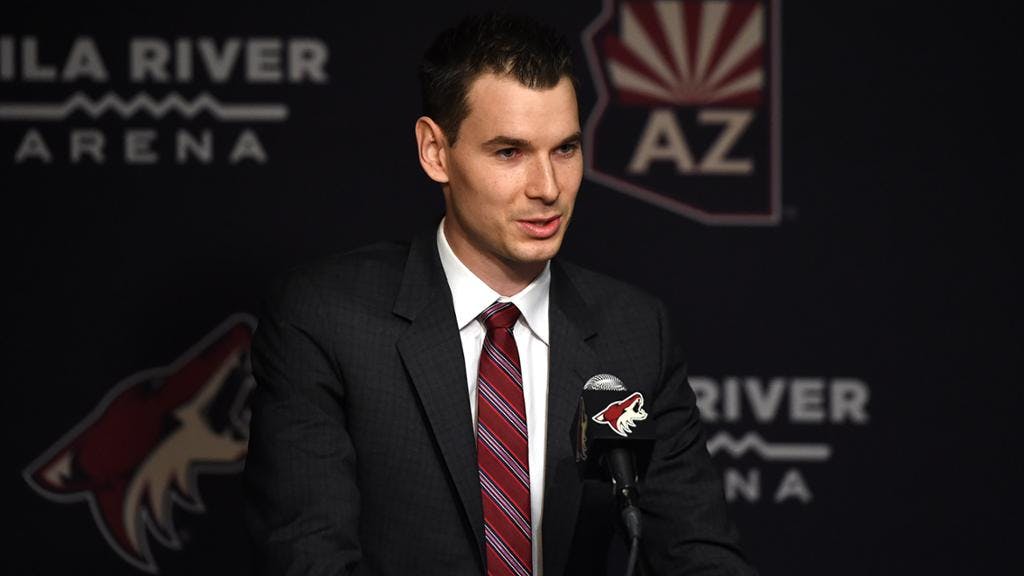
By Jason Gregor
6 years agoJohn Chayka is in his second season with the Arizona Coyotes, but this is the first year in which he has more decision making powers. In his first year, Dave Tippett was heavily involved, but when he was let go in the summer, Chayka was handed the reigns to work as the true general manager. He revamped his defence, acquiring Jason Demers and Niklas Hjalmarsson (he’d also acquired Alex Goligoski last summer). Those three, along with a legitimate #1 defender in Oliver Ekman-Larsson and young Jakob Chychrun, gave the Coyotes a solid D corps on paper.
Chayka hired Rick Tocchet as head coach, acquired Derek Stepan to give them some experience down the middle, and Antti Raanta to be their starting goalie.
They were hopeful the Coyotes could compete for a playoff spot, but injuries and a slow start have them sitting in 30th spot.
I caught up with Chayka last week to discuss his team, the style the Coyotes want to play, an inexperienced forward group and how he combines analytics with leadership, character and other intangibles.
My thoughts are in italics.
Jason Gregor: What has been the biggest factor in your team’s struggles defensively?
John Chayka: I think our expectations coming in to the season were significantly different. I think that our group continues to grow here, we’re continuing to transition leadership, transition coaching staff, transition a bunch of new players so for our group we still feel like we’re making some strides. We’re growing as a group. I think a lot of things are coming together as we continue to go through the season. At the same time I still feel like we’re still scratching the surface. We have a lot of young players who get better every day, day in and day out. There is a lot to learn about how to win in the National Hockey League. We’ve got a lot of young players still coming up like Dylan Strome, and he’ll be in the lineup after being a top scorer in the American League.
You know, we’re continuing to evolve and move down the line in terms of building what we feel is a team that can be successful for a long period of time. Certainly this year is a transition year for us and we’re working through that, but like you sad, we certainly expected to be better than where we’re at currently and goaltending and goals against is directly correlated. It’s a tough league when you don’t have your starter. I don’t care if you’re a team that’s built for the now and you’re a cap team and you have a bunch of veteran players who are mentally strong, or you’re a team like ours where we are growing and the mentality of playing well and doing a lot of good things and still being outscored is a tough one to deal with.
We’re a different team with our starter (Raanta) in the net. I think that that’s true about any team. We’ve had some unfortunate injuries, some are unlucky, at the same time we’re focussed on what we can control and that’s our work ethic day in and day out — how we practise, how we train. We’re trying to implement a new system here, a new way of playing and Rick Tocchet and his staff have done a phenomenal job of doing that. So that’s our focus every day and I’m pleased with our progress to date.
***Vegas is the one outlier. Very few teams can have the success they’ve had going three and four goalies deep.***
Gregor: How would you describe the style Tocchet wants to put in and why ultimately it will be successful?
Chayka: Well, he wants to play to our strengths. We’ve missed the playoffs now five years straight. With that comes the fact we have a lot of talented players who have had a lot of success playing with the puck, playing fast and playing in the offensive zone more often. If you look at last year to this year just in term of style of play, we’ve played in the offensive zone significantly more and for our group that’s where we need to play, like any team to have success. We’re focused on defending quick, playing quick, trying to get pucks to the net at a much higher rate than we have in the past. Again, we’re still a work in progress. Some nights it is better than others, some periods it’s better than others. There is an inconsistency that goes with transitioning and a patience that has to come with any young team, but it’s nice to see guys like Brendan Perlini and Max Domi and some of those young dynamic forwards playing more of a free game and playing more offense.

Gregor: John, is there a risk of having too much youth, because they’re going to make those inexperienced mistakes along the way. Do you need more experience to help those young guys moving forward?
Chayka: Yeah, it’s certainly a balance. I look at it like we have five defensemen on the back end who have over five hundred National Hockey League games and unfortunately again health has been an issue back that. We haven’t had our entire group, but it looks like Jacob Chychrun will be returning in the near future. Hopefully we can stay healthy enough to get our entire back end in place because we feel like we can have a strong backend when they’re healthy, but I think that that helps kind of work players in.
I look at players like Derek Stepan and Brad Richardson. These are centremen that do have some experience. So when you look at our youth it’s mainly coming in on the wing. Again, it’s not ideal but when you’re going through a rebuilding phase there are a lot of situations you have to endure, you have to overcome that aren’t ideal and yeah we’re a young team, we make mistakes.
I think that I give a lot of credit to the character of our group. I don’t think that if we didn’t have the people that we do that we wouldn’t be successful, but I believe in the character of our young players. I also believe in the character and work ethic of our coaching staff to continue to teach and continue to go through the process which is painful day in and day out sticking with it, doing the little things, working on skills, training, doing tons of video, just doing what we can on and off of the ice to continue to progress these young players and just move them down the line because again, the reward at the end of the line is very clear. We’re not the only team who goes through a process like this.
Like I’ve said time and time again, everyone wants to be the Chicago, they want to be Pittsburgh, they want to be LA, but no one really wants to go through the process. You look at those teams, they start off as young teams, young nucleuses that grew together, and that’s the stage that we’re at right now.
***Having watched the Oilers fail for a year. I felt the biggest mistake they made was not surrounding their young players with enough quality veterans. Of course the Oilers also employed some of the weakest defence corps in the NHL, so that didn’t help. It is interesting, and surprising a bit to me, to watch the Coyotes struggle as much as they have despite having four veteran D-men play all 30 games.***
Gregor: Within your staff, you guys crunch numbers and of course watch a lot of video. Do you have some analytics or numbers that show your team is progressing even though the on-ice results aren’t there?
Chayka: There are a lot of things that we look at, information to see where we are and where we are headed. Some of it is subjective, some of it is just looking at the mentality of our group, leadership of our group, how we deal with adversity, and things of that nature. Some of it is very subjective, we quantify intensity and duration of our practices and how we are training off of the ice, how we are managing a player’s care. I think those are all areas that don’t get seen on a game basis but in the background, day-to-day it’s something that we want to significantly change.
But on the ice right now I think that we spend over a minute and a half more in the offensive zone when you adjust and again, over a season that’s something that makes a big difference and that’s something that we want to focus on in terms of being a good defensive team, but trying to play in the offensive zone more often. It’s something that we’re going to have to continue to work on and to get better at, but that combined with a bunch of other things, how we break out the puck, how we attack the zone there are a lot of different ways that we can measure those things and just continue to measure them and measure that progress as we move down the line. We’ve covered a lot of ground in a short amount of time here, but there is still lots to go before we’re able to get to where we want to get to.
***I’ve long argued that seeing how players deal with adversity is huge in the development and building of a team. Showing frustration now and again isn’t a bad thing, as long as they player keeps working hard after the fact. And Chayka is bang on about things in the background and how important they are. Are players open to change? Willing to listen? While some loathe the term character, fact is it matters, but the challenge is how people, even within an organization, can view it differently. An easy example is how people reacted to Tom Brady yelling at his Offensive Coordinator. He was praised for being a fiery competitor. When Cam Newton did it, he wasn’t a leader. Subjective things are hard to evaluate, and sometimes quantify, but that doesn’t mean they aren’t important. ***
Gregor: John, this summer on my show we had analytics week and we had a bunch of highly regarded people from within the analytics community come on and discuss analytics, and represent it better and more accurately than how some of it is perceived publicly. They said, like anything, it has a limit on what it can tell you and Tom Awad came up with thirty six percent of a team’s success can be driven via analytics. Luck was another major factor.
Now that you’re on the inner workings of an organization and you see certain things and you talk about character, and some people cringe when they hear that term because there is no number you can necessarily relate to it from the outside, but on the inside you can. Has being privy to the inside workings altered at all your perception of those factors and how valuable they are even though there are still certain numbers we can’t correlate to them?
Chayka: I think the more time you spend in this business the more that you understand that the whole analytics debate is a bit silly. I mean, for me, we don’t even refer to it as analytics, we just look at it as information and that this is an information game. If someone’s character or how they deal with adversity, it’s all just data points and information that you use to make decisions on. To try to quantify the thirty six percent, if not more, I mean that’s not really, I think it’s futile to try to do that.
We just try to say, ‘OK we’re making decisions here that are a large magnitude, they have a significant difference on the future of our franchise and organization, let’s try to use every single means objective, no matter what it is, to try to understand the situation and apply best practices and how to come up with the best possible decision’.
That’s our approach. We obviously still employ scouts, we still employ sports psychologists, we kind of do everything we can to put our players in the best possible position to have success. We collect as much information to try to make a decision making process that can have repeated and sustained success year after year and decision after decision. And as we make decisions we learn more and as we go through different processes things will continue to evolve and how we’re looking at valuing it. And it’s a never stopping, it’s an ongoing process. I think that that’s the fun part of it, and what is the source of the information, or is it subjective or is it objective that’s not really what we spend a lot of time on. We just try to again make the best possible decision every time.
***Great answer. Although, no organization will make the best possible decision. I truly believe teams believe it is the best decision at that time, and they, like us, don’t have the luxury of knowing what the future holds. No doubt, there are riskier decisions, and like in business, I believe at times you have to take a risk. It is fair to criticize and applaud moves, but I find if you only criticize the bad ones you are cherry picking. The great part is some decisions do impact more negatively or positively than others and that’s when spirited debates occur.***
WRAP UP

I appreciated Chayka’s interview because he gave some insight, without divulging his entire plan, about what he hopes to achieve. Time will tell if it happens. The challenge they have is they don’t have an elite centre yet. We don’t know how good Raanta can be. With him their team was more competitive, but still not where they wanted to be. My one concern about their top defenders is their styles are all similar. Ekman-Larsson is elite, so no qualms there, but Goligoski, Demers and Hjalmarsson and even Chychrun don’t have a physical component to them. They can move the puck, and Hjalmarsson is a solid defender, but in an ideal world I’d like a defender with some what of an edge. Luke Schenn is that guy, but he’s their number six. It is early in Chayka’s tenure and I’m sure the Coyotes see this. Every team has some areas of weakness. That isn’t their biggest — finding a bonafide #1 centre will be their challenge.
Clayton Keller is a dynamic winger, and I think he will be very good. Maybe Strome becomes that guy for them. I wonder if the Coyotes win the lottery and select Rasmus Dahlin — would they considering moving Ekman-Larsson to get a top centre? He has one year remaining after this year, and I suspect trading him this summer would fetch a bigger return than during the season when a team would want to give up prospects and picks rather than alter their lineup.
Parting shots..
–I hear some trade Anton Slepyshev rumblings. Not saying it is close, but if I’m the Oilers, a team void of any right shooting forwards, I’d rather send him to the AHL and get him playing regularly. He doesn’t require waivers. He is only 23. He has played 65 NHL games and 59 AHL games over the past two and a half seasons. Why not have him play big minutes in the AHL for a month straight? He is big, skates well and has a great shot. He hasn’t played consecutive games very often and I wonder how that impacts his development. I wouldn’t be trading him away for a stop gap, because the Oilers simply don’t have any depth on the right wing.
–Alex Ovechkin scored his 578th goal last night moving him into 20th place all time. He passed Mark Recchi, who had 577 goals in 1652 games. Ovechkin scored his 578th in game 949. Unreal. Currently, only Mike Bossy, Mario Lemieux and Pavel Bure have a higher goals-per-game ratio than Ovechkin’s 0.62/game. His will drop over time, but much of that is due to games played. It is harder to maintain a high GPG the more you play. Wayne Gretzky finished his career at 0.61 in 1,487 games. Mike Bossy has the highest at 0.76 but he only played 752 games. Ovechkin’s ability to score as often as he has in this era, where the game is faster, tighter checking and with goalies who have their own goalie coaches, is amazing. If I had to vote, I’d put him as the best goal scorer in NHL history. Not the best player, but the best pure goal scorer.
MONTH OF GIVING
Thanks to Curtis for his generous $4800 bid and to The Glendale for the membership donation.

Nov 26, 2017; Boston, MA, USA; Edmonton Oilers left wing Patrick Maroon (19) reacts with right wing Zack Kassian (44) after scoring a goal during the second period against the Boston Bruins at TD Garden. Mandatory Credit: Bob DeChiara-USA TODAY Sports

Day #3: Dinner with Zack Kassian and Patrick Maroon at Ruth’s Chris Steakhouse
- You and three friends will dine with Patrick Maroon and Zack Kassian at Ruth’s Chris. You will be in a private room and Rebekah and her staff will serve a wonderful five course meal with wine pairing and beverages.
You can bid by calling 780.444.1260 or text 101260 between 2-6 p.m. today.
Thanks in advance. All proceeds will help out Santas Anonymous.
Recent articles from Jason Gregor

